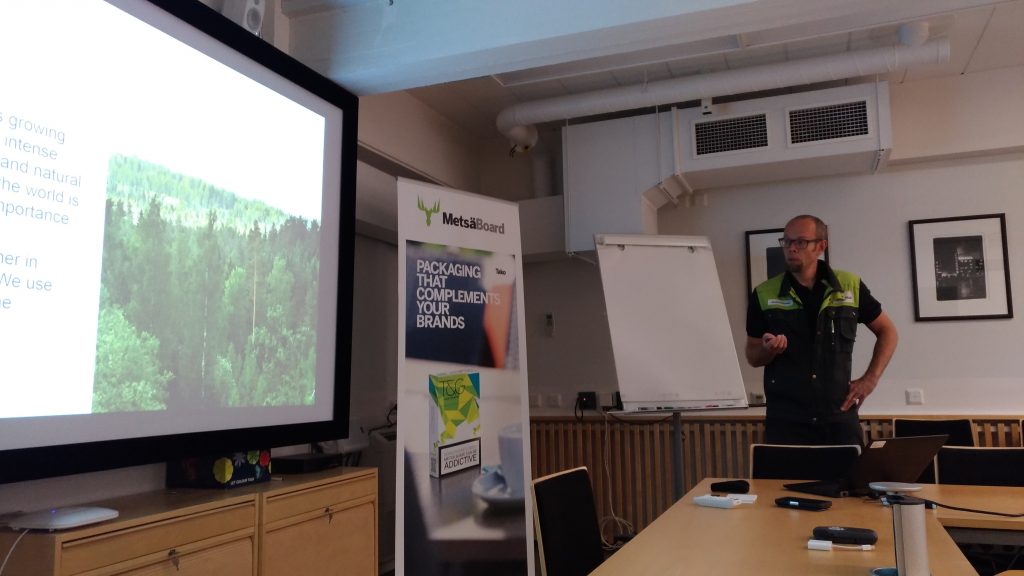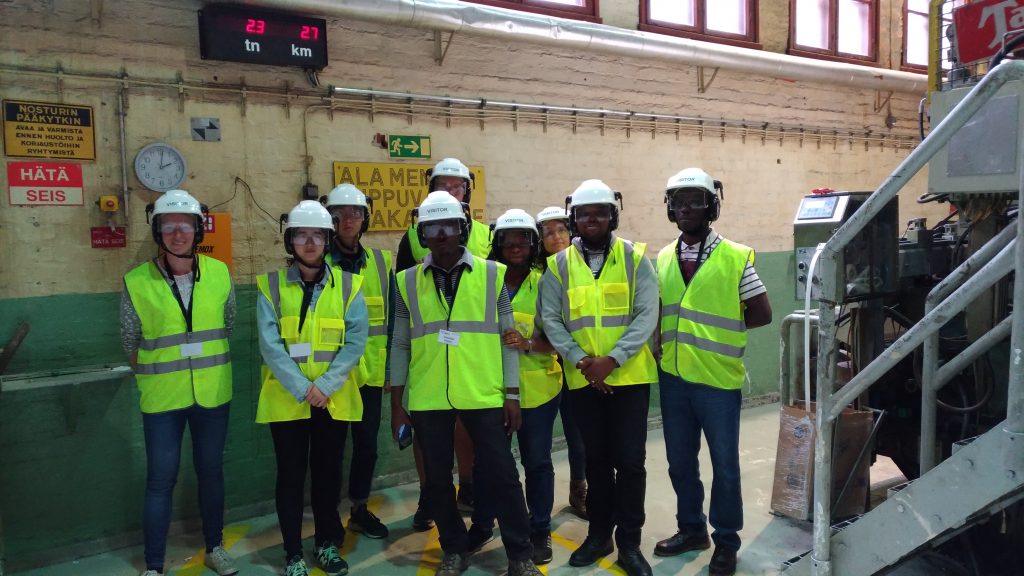13.08.2018. Industrial visit to Metsä Board Tako, Tampere.
We commenced today’s activity by taking a journey for the field trip to Hyytiala forestry field station. On our way, we had an exciting industrial visit to Metsä board mill, which is one of the largest paperboard mills in Finland. The industry is located in Tako, Tampere, a major industrial hub in Finland. The mill manager, Jaakko Ikonen (Engr.) gave a general introduction of the Metsä Group and the Metsä Board Tako.
The Metsä Group have five major business areas which include: wood supply and forest services (Metsä Forest; a cooperative owned by 104,000 Finnish forest owners, and members are taught how to manage their forests), wood products (Metsä Wood), pulp and sawn timber (Metsä Fibre), paperboard (Metsä Board), and Metsä Tissue, where tissue and cooking papers are manufactured. The company has a staff strength of 9,100 personnel and the annual sale per annum is 5 billion Euros. The company believes that the future depends so much on wood, and the group has assumed the responsibility of meeting the needs of the growing population. Sustainable bio-economy is the hallmark of the Metsä Group, therefore their major wood source for over 150 years is from Northern wood. The company offers sustainable choices of wood products from sustainably managed forests, and works for a better climate that enhances the wellbeing of the environment. The manager pointed out that Metsä Board is currently taking the lead in the production of paperboards (incl. folding boxboards and linerboards) from virgin fibres, although there are other competitors. The history of Metsä Board dated back to 1865, and has survived various stages of development till it became Metsä paperboard from the previous M-real in 2012. As urbanization increases, there is an upward trend in demand for packaging solutions, especially those produced from sustainable forests and consumers are willing to pay more for such paperboard products. Metsä Board is a non-integrated mill as it produces only folding boxboard up to 210,000 tonnes/a to meet the teeming needs for packaging solutions. The paperboard mill currently has 200 employees, and sells globally to over 100 countries. The mill gets her supply of dry pulp bales as raw material (about 500 tonnes/day produced from chemical pulping) from Metsä Fibres. The pulp was made from 10% softwood, and 90% hardwood. The dry pulp bales are fed to the pulper where it is mixed with water and mechanically re-pulped before it goes to the paper machine. The process starts from the head box, suction pumps, series of heated rollers for drying the paperboards to average of 7.1% moisture content before it finally goes to the reel. After the short introduction to the company and her product, we had a mill tour to see the paper machine in operation and everyone was quite impressed and excited to see how the paperboards were produced. Unfortunately, we were not allowed to take any picture during the mill tour, but we had a group photo.
At the conclusion of the mill tour, we continued our journey to Hyytiala Forestry station. On arrival, we had a short introduction to the forestry station, established in 1911, as a forestry college which was later transferred to the University of Helsinki to develop the discipline at the University level. At the end of the activity day, we had dinner, and later barbecue, during which we asked further questions on forest ownership and management in Finland.
-Samuel Oluyinka Olaniran

